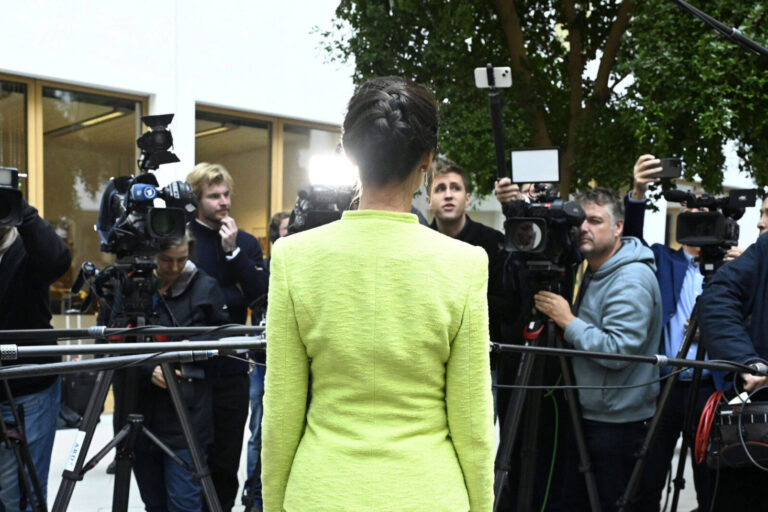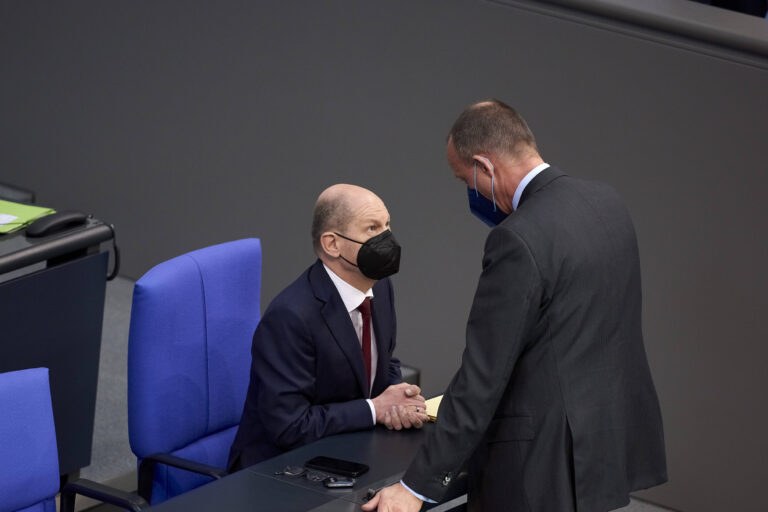On Thursday, November 17, 6.30-8.30 pm, Das Progressive Zentrum in cooperation with the Progressive Policy Institute (PPI) from Washington D.C. and Heinrich Boell Stiftung hosted a roundtable analyzing the outcome of the U.S. election, discussing electoral shifts and drawing consequences for elections in Europe next year especially in terms of strategies against populism.
To call the outcome of the presidential election in the United States a world-wide shock is a great understatement. With Trump’s triumphal and unexpected victory, the populist threat has never been more acute and dangerous. For progressives on both sides of the Atlantic it is the latest and loudest alarm bell to rethink and innovate their political and campaigning strategies against anti-liberal and populist movements.
Against this background, we invited our partners from the Progressive Policy Institute and Pete Brodnitz, a pollster, political strategist and founder of Expedition Strategies, to share their experiences of the last months after November 8th’s election.
After the introduction by Philipp Sälhoff, Senior Project Manager and Head of the International Relations at Das Progressive Zentrum, Will Marshall, Founder and President of the PPI, and Sabine Hämmerling, Department for International Cooperation (Division EU/North America) at Heinrich Boell Stiftung, Pete Brodnitz explained Trump’s victory with a profound analysis of demographics, socio-cultural circumstances and their effects on voting behaviour (PDF). He provided the audience with detailed figures, facts and analyses about the election, pointing out that mainly one group of voters caused Hillary Clinton’s defeat: white (male) non-college educated voters. Clinton here lost 14% compared to Obama’s 2012 result and ended up almost 40% behind Trump. He also managed to frame the decrease of traditional and manufacturing jobs caused by globalization and digitalization to his favour.
Subsequently, Will Marshall summarized that the perceived economic victimhood was a crucial reason for people to vote for Trump. His depiction of the American economy as a nightmare was not properly countered by Clinton. Asked by participants about the shortcomings of polls prior to the election, Brodnitz reflected critically on differences between ‘snapshot-polling’, prediction models and sound social research.
After the roundtable, Brodnitz’ elaborated on his findings and breakdowns in an article published on ZEIT Online in English and German.
Subsequently, Dr. Leonard Novy (Director of the Institut für Medien and Kommunikationspolitik and Editor of the magazine Carta) responded from a German and European Perspective, pointing out the perfect storm of crises, with Trump’s victory marking only the latest peak after the Brexit referendum and the rise of populism throughout Europe. Next year’s elections in the Netherlands, France and Germany, he argues, will be the ultimate test for the resilience of Western European democracies.
Our Policy Fellow Laura-Kristine Krause, who was a member of the policy team of Hillary Clinton’s campaign in 2008, chaired the roundtable and shared some knowledge from her work in the US. The concluding discussion with the participants evolved around key topics such as counter strategies to the populist surge, voter persuasion and mobilization in the election campaigns ahead and the real impact of racist and sexist attitudes.
Das Progressive Zentrum is picking up the global rise of populism with key projects like “TruLies: The Truth about Lies on Europe”, Countering Populism and the Dialogue on Europe with its Populism Thinking Lab.





